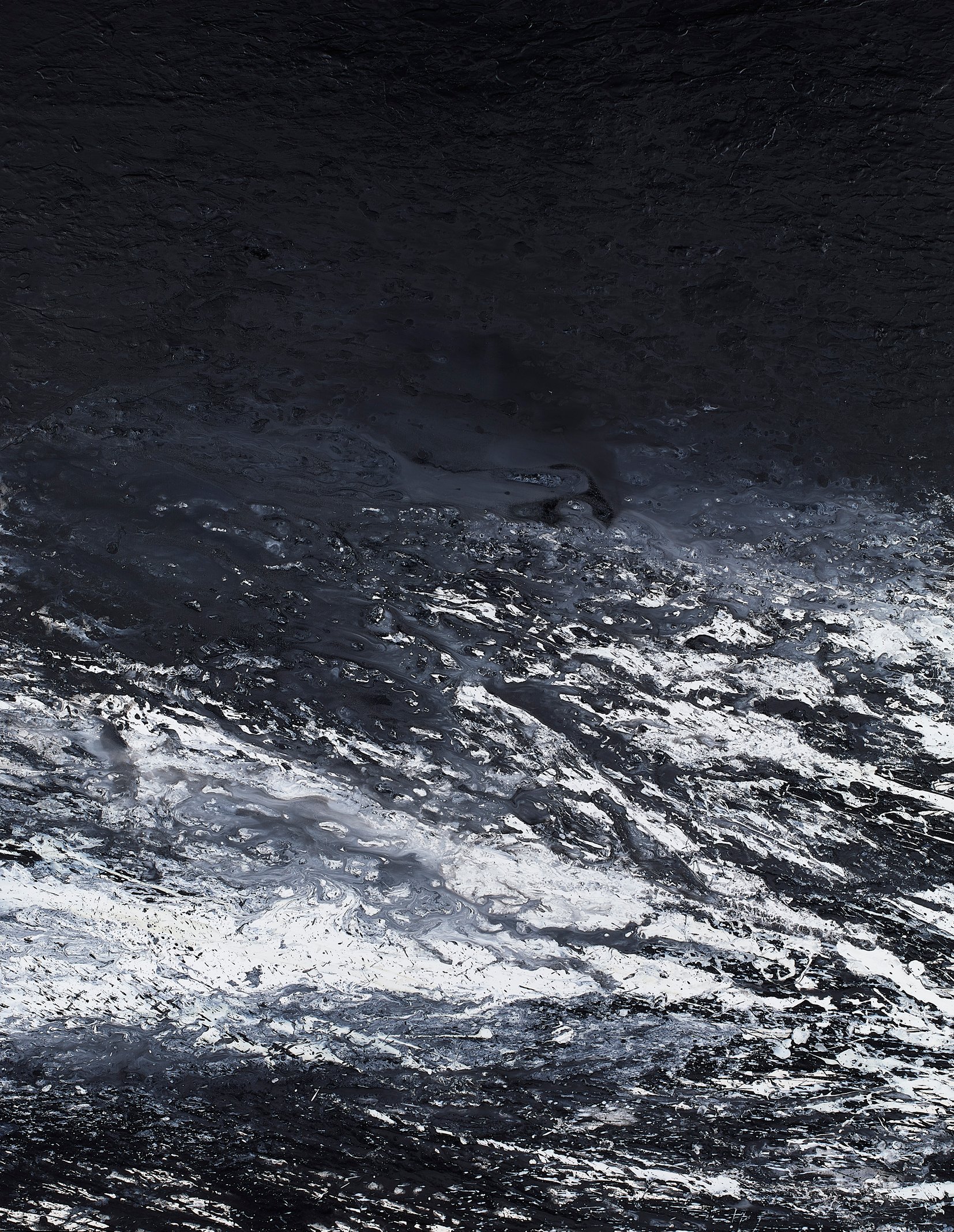
Chinese artist Lou Zhenggang (b. 1966) studied calligraphy and painting with her father as a child, and quickly became recognized as a remarkable talent in regional calligraphy circles in the 1970s and 1980s. At 20, she relocated to Japan and began focusing on bringing Chinese artistic traditions and culture to a greater international art scene. Over her three-decade career, she has been the subject of over two dozen solo exhibitions in China and Japan, as well as the United States.
Represented by Gallery Nyoze, which was founded in 2015 with the aim of promoting Lou’s work, the artist is currently the subject of the online exhibition “Everything Flows,” inspired by the philosophical idea “Panta Rhei,” first described by Heraclitus, which posits that everything in reality is in a state of continuous flow and movement.
We recently spoke with Lou to find out more about how the tradition of calligraphy continues to inform her work, and how nature inspires her.
Lou Zhenggang, Untitled (2021). Courtesy of Gallery Nyoze.
I read that you began studying calligraphy at a very young age. How does the tradition of calligraphy influence or inform your current practice today?
Chinese calligraphy has instilled the necessary discipline in me to be consistently precise with my brush strokes. When writing calligraphy, each movement can only be done once. Otherwise, overlaying a previous stroke with a new one in an attempt to correct it would create a glaring imbalance in the character. I have taken this principle one step further by trying to precisely capture on canvas the images in my heart the moment they are formed, further emphasizing the dynamism of my subjects.
Can you tell us a bit about your creative process? Where do you start? Do you plan everything out ahead of time or is it more intuitive?
I am inspired by the different elements in nature around me. These arouse deep feelings from the bottom of my heart. The canvas serves as my way to capture those fleeting thoughts and how I believe they would appear in nature.
Much of your work toes the line between representational and abstract, particularly your acrylic paintings of water. How do you approach abstraction and representation, do you see them as totally separate or more mutable?
The paintings portray the strong impressions I had of the elements surrounding me at the time. These images are what draw me into the depths of my soul, stirring up strong emotions which often have been buried over the course of time. The intensity of this constantly moving introspection is what guides my hand in creating strong images on the canvas.
What do you hope the viewing experience of your work is like? What do you want people to take away with them?
It might be too presumptuous of me to even hope that they experience my works in a certain way. All I do is just reveal how I feel on canvas. I believe in the unique individuality of each living being as posited by the philosophers I respect. The canvas and the subject of my water on acrylic are not trapped by borders in the same way that each person’s individual memories and feelings extend beyond what we are typically aware of.
Where do you typically look for inspiration? Are there other artists or movements that have particularly inspired?
I think everything around me, including my reflections on the past and the future, give me inspiration. It is no different from those moments when there is the reflection of light on the surface of water, leaving a powerful impression on me. Once my consciousness is fully immersed in this power it is then that I have reached the state where I can better capture on canvas the representations of those thoughts.
What are you working on now? Are there any themes or subjects you want to engage with that you haven’t yet?
At the moment, I am quite fascinated by this period of transition after the pandemic. Covid-19 placed everyone in limbo for over two years. Now that the world has begun moving again, it’s a subject that has been drawing my attention lately. Covid made a big splash and its ripples are coursing through the current of our era, creating reflections I’ve never considered before.
If you were not an artist, what would you be?
It’s not that I love being an artist. However, I have always felt a strong pull towards the expression of my thoughts on canvas and that has been my process from the start. You could say that it’s a profession I never really chose but kept calling to me.
Learn more about Lou Zhenggang’s work here.